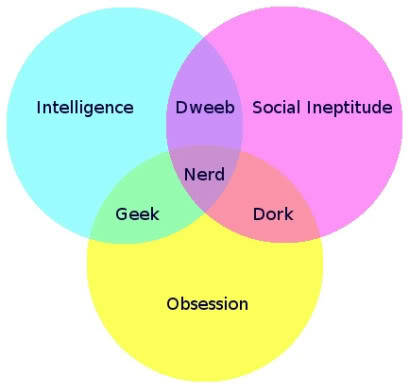Poverty and low energy consumption are highly correlated. But, even worse is how expensive the energy that the poor consume is--the out-of-pocket expenses and the price they pay in terms of health problems.
If only electricity can be generated and delivered to them, right? Inexpensive at that. I wonder what that least expensive route is! Of course, we know that answer, don't we?
While the United States is just now finding ways to try to keep coal a viable part of its power system, the rest of the world is riding even greater technological advances to a brighter future for the dark fuel.Yep, coal.
the world today faces two contradictory and interrelated challenges: While billions of poor people in the developing world need a lot more energy to pull them out of poverty and drive economic development, improve life expectancies, and bolster human health, the world also faces a looming and possibly existential threat from climate change—caused in large part by greenhouse gas emissions that are the bitter harvest of the world’s reliance on coal and other dirty fossil fuels over the past several centuries.Yep, all I have to do is picture that Tanzanian community for a real example of the interrelated issues those sentences highlight.
As history shows, without energy there is no economic growth. From 1000 to 1820, global growth averaged about 0.2 percent a year. Since then, growth has been 10 times higher. Modern prosperity, in other words, is built upon the vast amounts of chemical energy first unleashed by coal.Wait, is that some empty rhetoric based on the old stories of Industrial Revolution in England and the US, or do we have any contemporary ones too?
And there has been no better student of this lesson than China. It has relied on smoldering coal to achieve a nearly four-decade economic metamorphosis— lifting more than 600 million people out of poverty, even as it housed them in polluted cities—that has transformed a once-backward agrarian state into the world’s second-largest economy.But, don't economists say there is no free lunch? So, any price to pay for that economic miracle?
Meanwhile, this economic miracle has created a large, relatively wealthy Chinese middle class that has brought an ecological consciousness to the Middle Kingdom. Environmental nightmares, especially the choking air pollution fundamentally caused by the country’s overwhelming reliance on coal, have in recent years sparked huge protests by people questioning the legitimacy of the unelected leadership in Beijing.Damn! No free lunch, after all.
For the developing world, as India’s struggles show, simply getting power at all is a huge challenge. Globally, for the 1.3 billion people who lack electricity of any sort, shunning a gleaming, new, reliable coal-fired power plant on climate-change grounds is almost an impossible luxury.So, let's recap. There are poor people on this planet. Their poverty and various aspects of life are interrelated and to untangle them all will require energy. Coal provides energy at low prices, but then it also generates a whole lot of smog and godawful health issues. Anything else at this point?
Of course, global climate change, for which burning coal is one awful contributor. So, can we do anything as we now add climate change to all that interrelated set of issues? I suppose that will require turning away from coal. I wonder what the International Energy Agency has to say about this.
The International Energy Agency and the Nuclear Energy Agency suggest in a report released Thursday that nuclear will have such a significant role to play in climate strategy that nuclear power generation capacity will have to double by 2050 in order for the world to meet the international 2°C (3.6°F) warming goal.
With fossil fuels growing as sources of electricity across the globe, the IEA sees nuclear power as a stable source of low-carbon power helping to take polluting coal-fired plants offline.
No kidding! Nuclear power. I am sure that will, oh wait, there was that first paragraph:
Since the 2011 Fukushima Daiichi nuclear accident in Japan chilled global attitudes toward nuclear power, the world has been slowly reconciling its discomfort with nuclear and the idea that it may have a role to play in reducing greenhouse gas emissions to tackle climate change.
Ok, let's recap. There are poor people on this planet. Their poverty and various aspects of life are interrelated and to untangle them all will require energy. Coal provides energy at low prices, but then it also generates a whole lot of smog and godawful health issues. And coal is making things worse for the global climate. Nuclear power is more expensive, but is a low-carbon alternative. But then something like the catastrophe at Fukushima Daiichi can make people's lives godawful.
Globally, nuclear energy is already making a comeback with 72 nuclear reactors now under construction worldwide, mainly in Asia.“This marked the greatest number of reactors being built in 25 years,” IEA Executive Director Maria van der Hoeven said in a statement. “Nuclear energy also remains the second-largest source of low-carbon electricity worldwide. And, indeed, if we are to meet our collective climate goals, nuclear energy is critical.”
You and I, dear reader, don't have to worry about all these, right? Because, you and I are in comfortable homes, and comfortable temperatures maintained by air-conditioning or heating. Ours, for all purposes, is merely an intellectual discussion at this point, as we sip wine or coffee: let's talk about coal and nuclear energy. We are the modern versions of Marie Antoinette! But, for the global poor, and those who are not poor but are energy-starved, these are real life hassles that they worry about.
So, at the end of it all, what do you want to tell those poor folks in Tanzania, and Nigeria, and India, and Bangladesh, and ...?
I, for one, have no answer :(
I, for one, have no answer :(
 |
| Father, uber-happy, during our visit to Neyveli in 2002 (Lignite is a low-energy coal. Yep, lots of electricity generated there) |


















